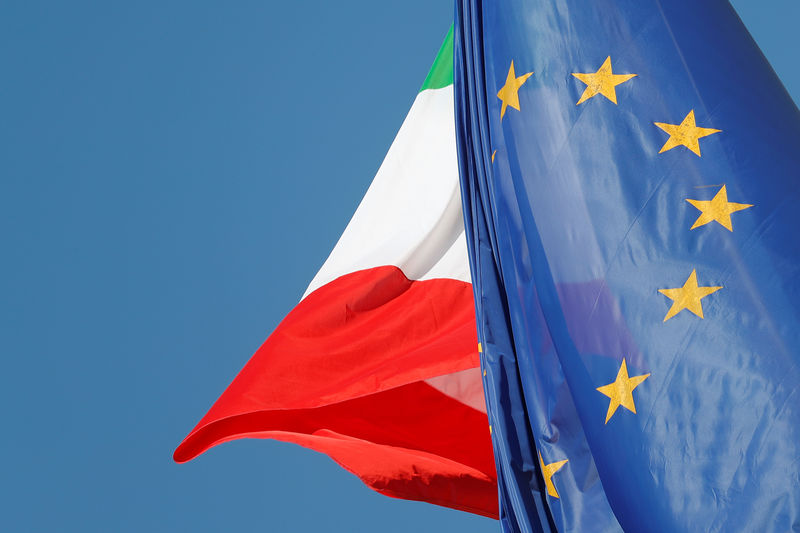By Giuseppe Fonte, Valentina Za and Gavin Jones
ROME (Reuters) - Italy wants to extend a state guarantee scheme that is helping its banks shed problem loans beyond a mid-2022 deadline and plans to open talks with the European Commission to gain its consent, three sources close to the matter said.
At the same time, Rome is negotiating with Eurostat to dissuade the statistics agency from a possible change in its accounting rules by which the guarantees would inflate Italy's already towering public debt, the sources added.
Eurostat declined to comment.
By narrowing the losses that banks must bear to shed bad loans, the 'GACS' guarantee scheme first introduced by Rome in 2016 has proved a major success, prompting Greece to replicate it under its Hercules programme.
Under the GACS scheme, banks can buy a guarantee from the Italian Treasury at market prices to back the least risky notes when selling bad loans repackaged as securities. This reduces the risk for buyers and helps banks to fetch a better price.
Bad loan specialist Banca IFIS forecast in September that GACS-backed transactions will have rid Italian lenders of 94 billion euros ($106 billion) in gross bad loans by the end of 2021, more than a third of all the impaired debts which have been offloaded by the sector since 2016.
The programme is due to expire on June 14, 2022 under terms agreed with European Union competition authorities, but the Italian Treasury wants to open talks with Brussels early next year to renew it, the sources said.
One said Rome would seek an extension of "years." This would help its banks to confront the fallout from the COVID-19 pandemic, which has been cushioned so far by emergency support measures partly still in place.
COMPLICATED
Complicating the matter, however, Italy faces pressure from Eurostat to count the GACS guarantees as public debt.
Proportionally the highest in the euro zone after Greece, Italy's debt stood at a post-war record of 155.6% of GDP at the end of 2020. Rome forecasts 153.5% for this year.
Eurostat has approached both Italy and Greece to discuss the possible accounting change, but Italian authorities believe the agency is close to dropping the idea, the sources said.
At a meeting early last week, Rome explained to Eurostat officials why the GACS scheme was different from the Greek programme, two of the sources said.
At the end of 2020, GACS-backed debt held by investors amounted to 10.4 billion euros, according to the latest data released by the Italian Treasury in April.
The pandemic has slowed down recovery of bad loans, heightening risks the state guarantee could be tapped as GACS-backed transactions fall short of initial projections.

Scope Ratings said last week that bad loan collections in Italy in October were nearly a third lower than pre-COVID.
($1 = 0.8874 euros)
